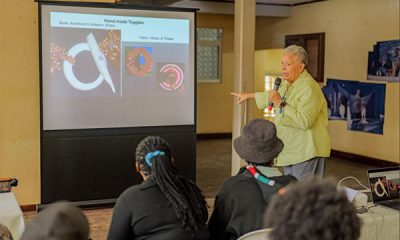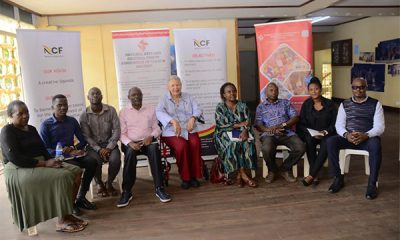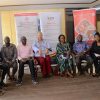Arts
The need to fix our Poor-reading culture
Gone are the days when the popularity of reading novels, magazines and collections of poems took a gigantic part of a youth’s time. This extra ordinary appreciation of the reading culture boosted the intellectual skills of the young as well as the old. As young people we used to boast of the number of books we had read. In my primary school days I used to devour any novel that came my way and pupils nicknamed me ‘novel’. We are now left to wonder why today’s generation hates reading.
Jacques Barzun once said that “No subject of study is more important than reading . . . Actually all other intellectual powers depend on it”. Reading is a lifelong, enjoyable habit that enables literate people to continue learning long after they have left formal education behind. It enables those who read to stretch their imaginations beyond the daily realities they face, and experience other realities.
It has been established that reading also strengthens their intellectual and mental abilities, making it easy to understand situations they find themselves in. It gives them the ability to synthesize information, understand a problem and make persuasive inferences more easily than those who never read. It makes a real or major difference in the lives of individuals who read and societies whose citizens read long after formal schooling.
A reading or learning nation is essentially a thinking nation. And a thinking nation has inherent capacity and resilience to meet and take advantage the inherent challenges they meet; they have always turned these challenges, these problems into opportunities for revival or growth.
This has been possible only because a few among them have had the insights, the wisdom and the analytical capacity to diagnose the challenges and pointed out the dividends the society can reap from the challenges.
Over the years, reading has become a compulsory activity for any sensible human being. The current world does not allow for people with a phobia in reading. Children have been sentenced to over ten years in school just to read.
Even in the remotest continents where technology is a hundred years behind that of the Western world, reading has been an integral part of those societies. But of course man can never be forced to do what he does not want.
There is this popular saying ‘if you want to hide something from a black man, or an African, write it’. It sounds like Africans listen more than they read. In Africa, a sign that says ‘do not trespass’ may not be respected unless it was accompanied by a person next to it, reading the sign for us. Africans are just so used to oral tradition that literate tradition is almost foreign. There is need to examine the causes for the poor reading culture and the possible solutions to that.
The biggest mistake stems from the fact that we often forget that parents have a great responsibility in the literacy development of their children. It is said that parents who read to their children nurture more than literary skills.
They could, with advice from educators around them, buy graded books they can read to their children or simply buy story books (fiction and non-fiction works) for their children in upper primary and secondary schools to read for as a form of relaxation. The kind of informal education, children in the early grades enters with in school, has capacity to advance or retard the children’s readiness to learn.
Children start learning many things, including reading, at a very young age. Therefore if they get used to books at a very tender age, they will most likely develop interest and start buying their own books when they get some money.
This is because children’s ability to understand what they are reading is inextricably linked to their background knowledge. Very young children, who are provided opportunities to learn, think, and talk about new areas of knowledge will gain much from the reading process.
It is unfortunate that some people perceive reading as an introverted hobby, for the feeble and the anti-social. However, you will be pleasantly surprised to find out that reading has numerous positive effects on your emotional, intellectual and psychological state of mind.
Being a reader means that you are more likely to learn something new every day. Frequent reading makes you smarter. It doesn’t only help you retain knowledge but also helps you remember that knowledge later on in life.
If the education ministry and its partners have realized the need to emphasize reading we are at least one step into the journey. The National DEAR (Drop Everything and Read) Day is a fair start. During this day, schools, Organizations, communities, and all stakeholders around Uganda are invited to read for at least 20 minutes at 11 AM.
This year it was on March 15, 2017. As a nation we can do more to ensure that the reading culture is developed. We live in an information age and the search for information through reading is the way to go.
Comments



















